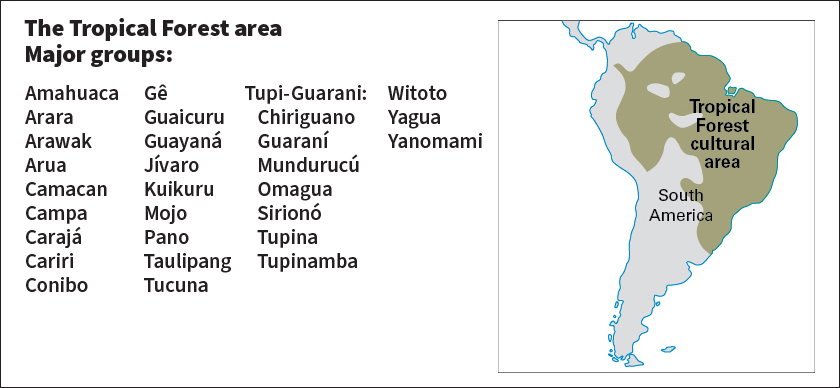Tupi-Guarani << too PEE `gwah` rah NEE >> were a Native American people who formed many tribes that lived in eastern and central South America. The tribes included the Tupinamba, Tupinikin, Guarani, and Omagua. These tribes spoke related languages. Today, the Guarani language is widely spoken in Paraguay and is one of the nation’s two official languages. The other official language is Spanish.

The Tupi-Guarani were farmers. Cassava, a root crop, provided their main food. They also planted yams, corn, peppers, and cotton. In addition, the tribes hunted, fished, and gathered fruits. Most of their villages consisted of one or more large rectangular houses. Each family had its own partitioned section in a house. Some tribes, especially along the Brazilian coast, were fiercely warlike. But they are extinct. A few Tupi-Guarani tribes still live in Brazil and Paraguay.
